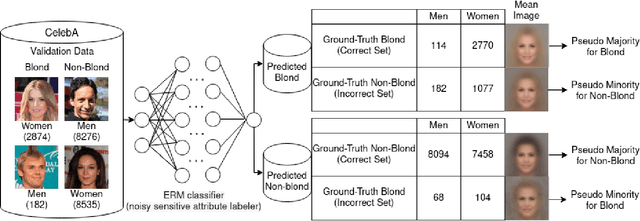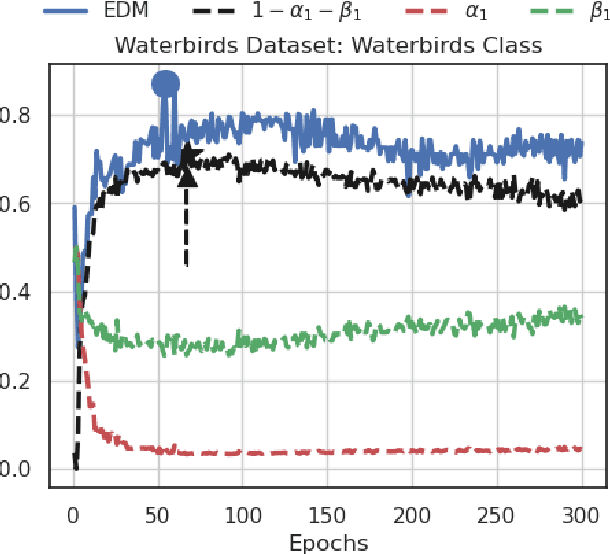Hyper-parameter Tuning for Fair Classification without Sensitive Attribute Access
Paper and Code
Feb 02, 2023



Fair machine learning methods seek to train models that balance model performance across demographic subgroups defined over sensitive attributes like race and gender. Although sensitive attributes are typically assumed to be known during training, they may not be available in practice due to privacy and other logistical concerns. Recent work has sought to train fair models without sensitive attributes on training data. However, these methods need extensive hyper-parameter tuning to achieve good results, and hence assume that sensitive attributes are known on validation data. However, this assumption too might not be practical. Here, we propose Antigone, a framework to train fair classifiers without access to sensitive attributes on either training or validation data. Instead, we generate pseudo sensitive attributes on the validation data by training a biased classifier and using the classifier's incorrectly (correctly) labeled examples as proxies for minority (majority) groups. Since fairness metrics like demographic parity, equal opportunity and subgroup accuracy can be estimated to within a proportionality constant even with noisy sensitive attribute information, we show theoretically and empirically that these proxy labels can be used to maximize fairness under average accuracy constraints. Key to our results is a principled approach to select the hyper-parameters of the biased classifier in a completely unsupervised fashion (meaning without access to ground truth sensitive attributes) that minimizes the gap between fairness estimated using noisy versus ground-truth sensitive labels.
 Add to Chrome
Add to Chrome Add to Firefox
Add to Firefox Add to Edge
Add to Edge